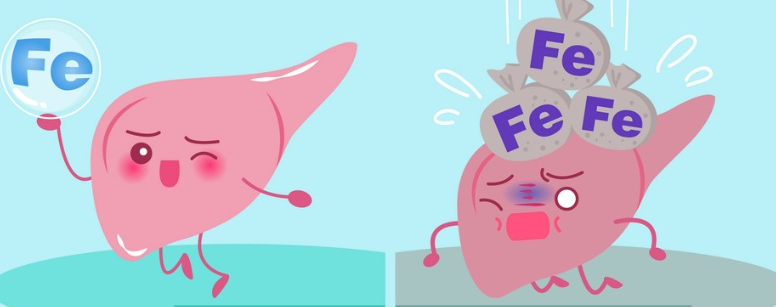To take care of your health, it’s important to be alerted. Here are 6 symptoms of fatty liver disease, that can put the liver at risk. Beyond favoring a healthy diet, it is important to always be alert to take care of your health. Certain disorders that can be overlooked because they seem harmless can actually be symptomatic of organ dysfunction.
This is why it is useful to learn about the specific signs of different diseases but also to react quickly in their presence. Hepatic steatosis is the result of an excess of fat in the liver cells. Here are 6 symptoms indicative of this disease.
"It is better to prevent than to cure" This popular adage applies perfectly to health problems, which, countered in time, can save sometimes fatal consequences for our organs. This is the case for fatty liver disease, a disease that affects the liver which accumulates fat within its cells. To fight against the latter, it is essential to take suitable dietary measures as well as adopt a better lifestyle. Spotlight on her symptoms.
Favorable factors
Hepatic steatosis can be precipitated in the presence of certain factors linked to habits or even to diseases which can constitute a fertile ground for its appearance. Among them: metabolic disorders such as obesity or even type 2 diabetes which affect the functioning of the liver. Excessive alcohol consumption can also cause this accumulation of fat in the filtering organ.
What is fatty liver disease?
This disease is characterized by an excess of fats inside the liver cells, notably suffocating the liver cells. There are two types: fatty alcoholic fatty liver and non-alcoholic fatty liver, which is also known as "fatty liver disease". As experts explain, the first is linked to excessive alcohol consumption while the second, which would be the most frequent in France, is essentially the result of poor diet and certain factors associated with metabolic syndrome. Hepatic steatosis must be prevented in time as it compromises the proper functioning of the essential filtering organ for the production of proteins, metabolism of fats, elimination of toxins and regulation of the presence of amino acids. To prevent this disease, it is important to identify if you are not part of the so-called "at risk" population.
People at risk
It is about being extra careful when we are among those deemed "at risk". Professor Vlad Ratziu, hepatologist at Pitié Salpêtrière particularly warns people over 50, and especially people with overweight, dyslipidemia, diabetics and those who suffer from hypertension.
What Are Liver Fat Overload Symptoms?
To prevent this disease, whether alcoholic or not, it is essential to be attentive to the signs that the body sends us. Indeed, fatty liver disease is often asymptomatic and does not cause its first repercussions until after its development. To this end, the Mayo Clinic reviews 6 signs that may seem harmless and that should alert you:
Abdominal pain: Discomfort in the upper abdomen can mean that the liver is damaged by an excess of fat cells.
Unjustified fatigue: This feeling of exhaustion comes from the slowing down of the metabolism caused by the dysfunction of the liver.
When the disease is at an advanced stage, the following signs are likely to appear, especially in the case of fibrosis or cirrhosis in the most extreme cases:
Abdominal swelling: This symptom is linked to ascites, which is the accumulation of protein-rich fluid in the abdominal area.
A larger spleen: In case of liver disease, the liver and spleen sometimes increase in size simultaneously. In this case, it is hepatosplenomegaly.
Red palms: fatty liver disease can manifest as reddening of the hands called palmar erythritis.
Yellowing of the complexion: This is convincing evidence of liver disease, especially in the case of cirrhosis.
How to prevent fatty liver disease?
To fight against the occurrence of fatty liver disease, it is important to take steps to protect yourself from it. Here are which:
- Limit the consumption of refined products often rich in sugars which can affect the functioning of the liver.
- Prefer low fat foods and prefer foods high in healthy fats such as olive oil.
- Limit alcohol because it saturates the liver with sugar.
- Ask your doctor about interactions with certain drugs that damage the liver.
-Practice a regular sports activity to eliminate toxins accumulated daily


